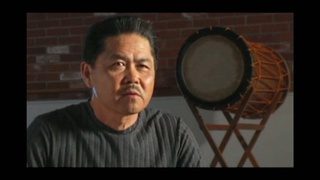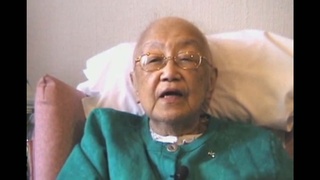Interviews
Grandfather's arrival in the U.S., experiencing discrimination
And my Grandfather Yoshitomi had already immigrated to the United States. And he actually went to the United States six years before my grandmother, in 1906. And his intention, following his graduation from business college in Japan, was to come to America and make a lot of money, like a lot of the immigrants expected, and to bring that money back to Japan and retire as a wealthy person at a very young age. He was going to do that in San Francisco. And so he got on a ship for San Francisco. And the story is that a day outside of San Francisco is when the great earthquake hit, in 1906. And so the people on the boat had to choose another port and at that time the next closest major port was Seattle. So the boat swung northward and several days later they landed in Seattle.
And, of course, he found out that life was not as easy as he expected it to be. And he ended up getting jobs as either a cook or a janitor, and ended up traveling all around the Pacific Northwest looking for work, and even for a period of time going up into Canada and living and working up there. And I remember he used to tell stories about working, cooking for the Elk's Club. And he talked about how, when he would leave the restaurant late in the evening, leave the kitchen, that there would be a couple of white men out there waiting for him and they would stone him. And so he got injured several times, and so they made special provisions for him to leave out the back alley. And so eventually that problem subsided when they, the people that were doing that assumed that he was no longer working there.
Date: March 18 & 20, 2003
Location: Washington, US
Interviewer: Alice Ito and Mayumi Tsutakawa
Contributed by: Denshō: The Japanese American Legacy Project.












